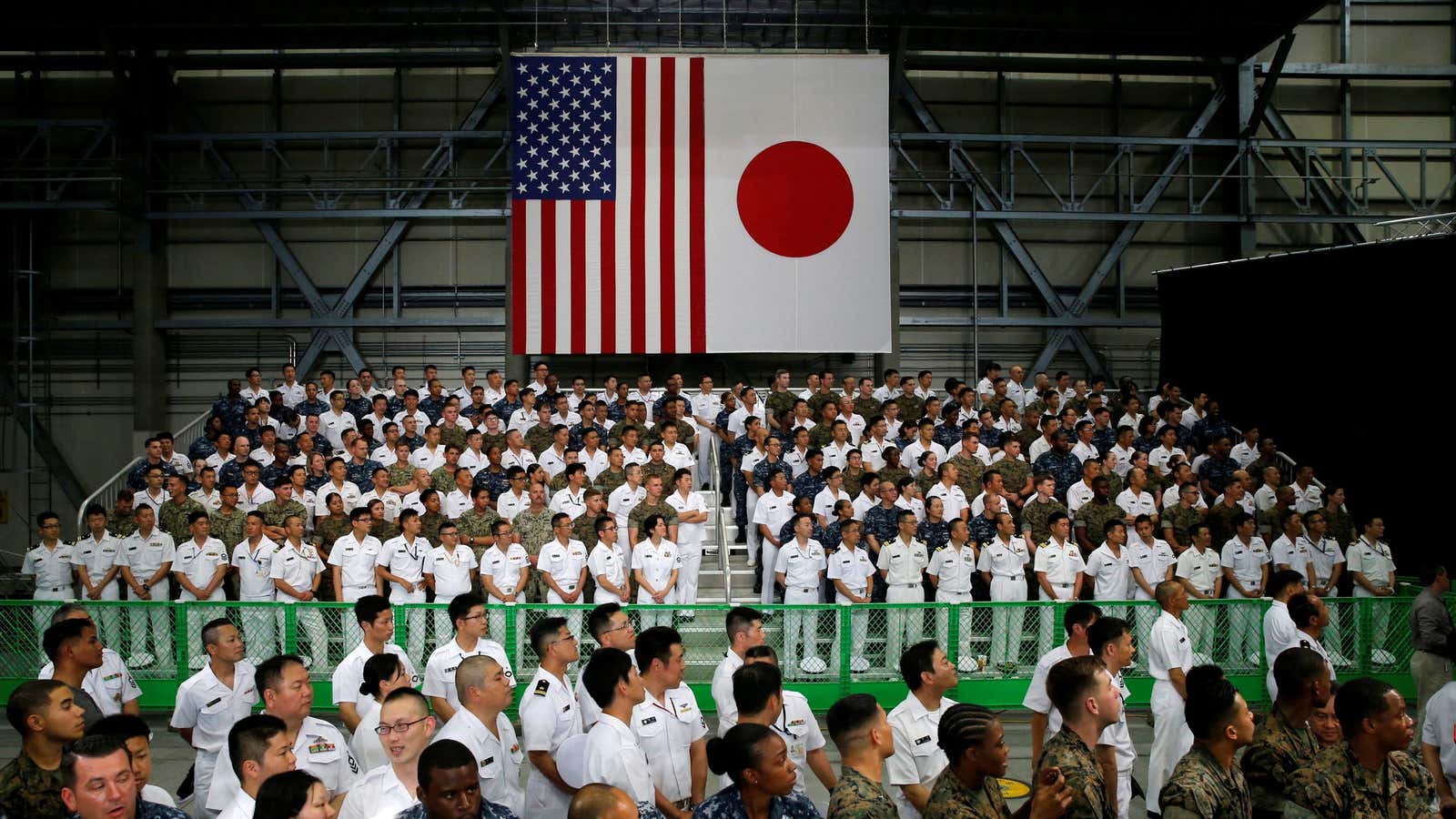There is arguably no better American ally than Australia, which has fought alongside the US in every single major war since World War I. Ties between the two countries are “exceptionally close,” according to the state department. Yet Donald Trump chose to insult prime minister Malcolm Turnbull in a recent phone call, and is now threatening to upend a deal agreed to between the Obama administration and Canberra to consider resettling refugees in the US.
The leaked reports of Trump’s acrimonious phone call with Turnbull come as defense secretary James Mattis arrives in Seoul today (Feb. 2) for his first overseas trip to South Korea and Japan—two key allies that are understandably nervous about the new “America first” administration’s security commitment to the region following comments by Trump during his campaign that the two countries need to pay more for America’s military presence.
Mattis has plenty of pressing issues on the agenda, including the threat from North Korea, a planned US missile-defense system in Korea, and whether the US under Trump will commit to including the disputed Senkaku Islands—which are administered by Japan but claimed by China as the Diaoyu islands—as per the US-Japan Security Treaty as military tensions ratchet up in the region.
Aaron Connelly, a research fellow at the Lowy Institute in Sydney, says that America’s allies in Asia are still in a “wait and see” approach as to which parts of Trump’s rhetoric are likely to transform into action, and whether Mattis can influence Trump’s thinking on Asian affairs. So far, the biggest move taken by Trump to rattle the region is his decision to withdraw the US from the Trans-Pacific Partnership (TPP) trade pact.
“Once the full administration is in place… there will be more information on what [Asia] policies a Trump administration is likely to pursue,” says Connelly, who notes that by this point in a new administration, key posts such as the US state department’s assistant secretary on East Asia and Pacific affairs and the assistant secretary of defense for Asian and Pacific security affairs would normally have been appointed.
In an editorial in the Korea Times on Jan. 30, the paper said that in addition to addressing all the important policy items on the agenda, the “bigger job [for Mattis] is about mending ties.”
The Pentagon has said that it would not implement any major changes in its policy towards the region, or ask Japan and Korea to shoulder more of the costs for the deployment of US troops in those countries.
But it seems that fires are starting faster than Mattis, or other US officials, can them put out. Just yesterday (Feb. 1), Japanese officials had to outright condemn remarks made by Trump that the US was ”like a bunch of dummies” as Japan manipulated its currency. Prime minister Shinzo Abe is due to meet with Trump in the US on Feb. 10—and his list of talking points keeps getting longer.
